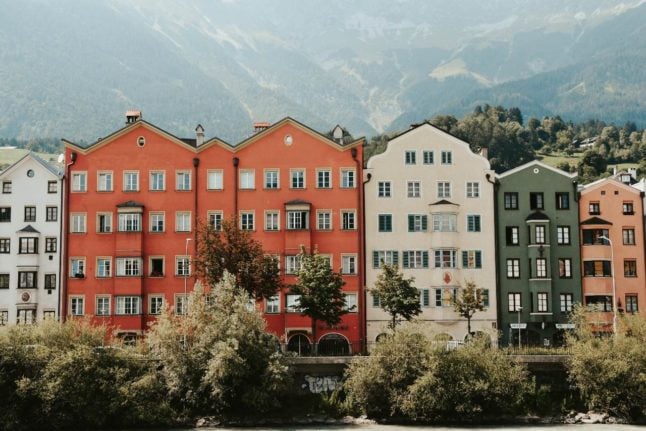Lockdown and Covid restrictions
Currently, Austria is set to lift its national lockdown after December 12th. But there are three caveats to add here.
Firstly, even once the national lockdown is lifted, regions may introduce their own measures. At the moment, we know that at least Upper Austria plans to remain locked down for an extra week.
Secondly, once the general lockdown is lifted, a nationwide lockdown for the unvaccinated will remain in place.
Thirdly, the national lockdown is likely to be replaced by a new set of restrictions, so it’s fairly unlikely we will return to the same level of restrictions we had pre-lockdown. What we don’t know is exactly what these will look like: some sectors (like evening gastronomy, or gastronomy in general for example) could remain completely closed, there could be evening curfews, or we might see a roll-out of the 2G+ rule (vaccination or recovery plus a negative test). Whatever happens, we will do our best to keep you updated.
2G rule updated
Don’t get caught out by this one: from December 6th, the validity period for vaccinations will change. In order to be considered fully vaccinated, you must have received your second dose of a two-dose course no more than 270 days ago. After that, you will need a booster dose (and proof of it) in order to be considered fully vaccinated under 2G rules. Previously, second doses were valid for 360 days.
Will we get a rare Sunday shopping day?
This is tied to Covid-19 restrictions but is well worth noting. Austria’s Chamber of Commerce has called for an adjustment to be made to the laws regulating Sunday opening hours to allow shops and customers to capitalise on the one weekend of shopping they are expecting between the lockdown and Christmas.
If allowed, this would mean shops would open on December 19th — though it will require agreement from unions (who want it to be strictly voluntary for staff to work that Sunday) as well as the government.
Vaccines for under-12s
Depending on where you live in Austria, Covid-19 vaccines for children aged between five and 11 may have already begun or it may be rolling out during December following the European Medicines Agency’s approval of the Pfizer vaccine in this age group.
In Lower Austria, vaccination for under-12s started immediately after the EMA approval, but is set to be rolled out to more locations soon.
Vaccination for the age group has also been opened up already in Upper Austria, Tyrol, Salzburg, Burgenland and Vorarlberg over the past week after Vienna led the way in opening vaccinations to under-12s.
Styria is starting vaccination for under-12s from December 4th at the centres in Graz, Premstättten und Leoben, or you can contact your doctor. In Carinthia it is also possible to get the vaccine from some doctors, with appointments for children set to be made available at vaccine centres from early December.
A draft of Austria’s compulsory vaccination law
This is expected to be drawn up in December, in the week starting December 6th, according to initial plans from the government which wants the law in place from February 2022. It then needs to undergo a four-week review process before it is officially voted on. Discussions are already underway between the government, representatives of the SPÖ and NEOs opposition parties, experts from the medical sector as well as those from civil society and the welfare sector.
Travel rules
In order to use proof of vaccination as your entry proof for Austria, as of December 6th this will only be valid for 270 days after a second dose of a two-dose vaccine, in line with the 2G rule explained above. This means that if you had your second dose earlier than that, you will either need proof of a booster dose to enter Austria, or will need to use another proof such as a negative test.
Austria banned flights from South Africa, Lesotho, Botswana, Zimbabwe, Mozambique, Namibia and Eswatini in late November in response to the new Covid variant, so we will find out if these will be lifted or if more countries will be added to the banned list.
Ski season
This year, Austria’s ski resorts are allowed to continue operating during the lockdown, even while hotels and restaurants are closed.
Some of the first ski resorts to open include Ischgl, Hochzeiger and Axamer Lizum in Tyrol, Bad Kleinkirchheim, Gerlitzen, and Turrach in Carinthia, Hochkar in Lower Austria, Hinterstoder in Upper Austria, and Gargellen in Vorarlberg, all set to kick off the season on December 3rd.
FFP2 face masks will be required in chair lifts and other enclosed areas, and many resorts are also imposing a mandatory 2G requirement (proof of vaccination or recovery). During the lockdown, food and drink establishments may only offer takeaway. Be aware that in ski resorts that span two countries, different rules may apply on each side.
Holidays to know about
There are three public holidays in December in Austria, but this year two of them fall on a weekend (Christmas Day and Boxing Day on December 25th and 26th) which means only one day off work is guaranteed for employees: Wednesday, December 8th.
On December 8th Austria will be celebrating the Feast of the Immaculate Conception, which is the conception of Mary, the mother of Jesus. Her own mother Saint Anne became pregnant in the usual, biological way, Catholics believe, but the conception was ‘immaculate’ because God intervened, absolving Mary of original sin.
Christmas Eve (December 24th) and New Year’s Eve (December 31st) are not public holidays but many Austrian employers treat them as such, meaning that you may well get a paid day off work.
And another non-public holiday that’s still worth adding to the calendar is December 6th, St Nicholas Day, when St Nicholas gives presents to well-behaved children while his companion, the demonic Krampus, is on hand to punish naughty children.
Last post for Christmas
To make sure a parcel arrives in time for Christmas in Austria, domestic parcels should be posted by December 21st for regular post, or by December 23rd with the express service.
When sending a parcel to another European country the deadline is December 15th, and for gifts going outside Europe, the deadline is December 13th.
As for letters and cards, within Austria send these by December 20th for economy post and by December 22nd with priority post. To another country in Europe, the economy post deadline is December 12th and for the rest of the world it is December 8th.
Note that this are the last dates you should be sending your Christmas packages, and it’s probably wise to post them earlier if you can, due to the uncertainty over travel and Covid.
Vaccine appointments booked for those still awaiting a first dose
People who haven’t yet had a first dose of a Covid-19 vaccine will start receiving letters from their insurance companies and/or local region during December.
The idea is to give an extra push to those people who are not opposed to vaccination but just haven’t got round to it yet, and to reach those who might not know how to go about booking a slot. The letters will also contain information about how the vaccines work and their safety.
Help support the homeless through the winter
The winter weather is well and truly here, and one group this poses a risk to is Austria’s homeless population.
There are phone helplines running throughout the winter months which you can call if you see someone sleeping rough to ensure they get offered help. The charity Caritas recommends taking the following steps if you see someone potentially in need: talk to them and see if they need help; call the Caritas or regional helpline (numbers listed here), or call 144 if they are in need of immediate emergency help.
New night train to Paris
Night trains are set to run from Vienna to Paris (via Munich and Strasbourg) three times a week from December 12th, just in time for Christmas (and the end of Austria’s lockdown, though this does not prevent overseas travel).
Starting out from Vienna’s central train station, the route will also stop at St. Pölten, Linz and Salzburg before crossing into Germany and on to France. Departures will be at 7.40pm every Monday, Thursday and Saturday, reaching Salzburg at around 10.15pm and arriving in Paris at 9.42am the next day.
Return trips will run every Tuesday, Friday and Sunday, leaving Paris at 7.58 am to reach Salzburg at around 7.30am the next morning and Vienna at 10.12am. A one-way ticket on this route starts at €29.90 for a seat, €59.90 for a couchette, and €89.90 for a space in a sleeping cabin.
Post-Brexit residence deadline
This is the final chance for British citizens to apply for their Article 50 cards.
This applies to everyone who was legally resident in Austria under EU law before the end of the Brexit transition period (December 31st 2020) and the card is mandatory to continue living and working in Austria past New Year’s Eve.
In some situations you may not need to apply for the card, for example if you hold another EU citizenship, however you may still want to apply for the Article 50 card as the rights offered are slightly different.
If you know other British citizens in Austria, particularly those who may not use social media (or read The Local), please check they are aware of the deadline.
Editor’s note: This article was updated on November 30th to add a correction. Salzburg has not confirmed whether its lockdown will last longer than the nationwide one.



 Please whitelist us to continue reading.
Please whitelist us to continue reading.
Member comments